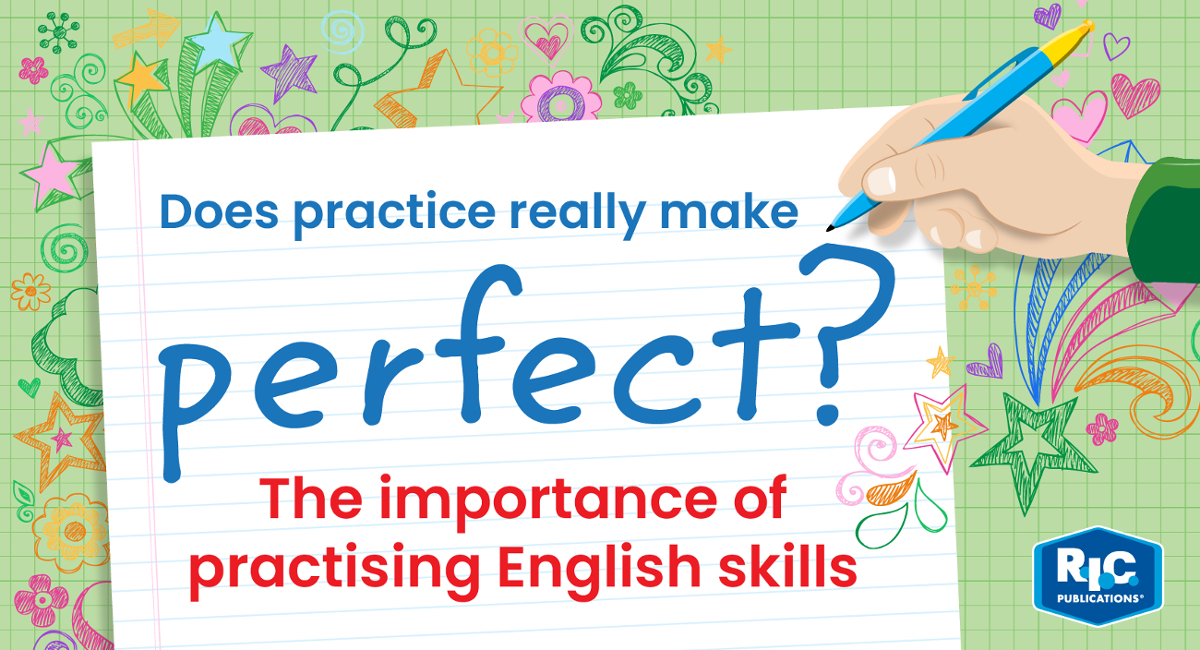- Monday 19 August 2019
- 0 Comments
‘Practice makes perfect.’
‘Practice makes progress?’
‘Is this practice even working?’
Ever find yourself in this conundrum, believing the well-known English proverb but never quite reaching that level of perfection with your students?
The Macquarie dictionary defines perfect as 'in a state of complete excellence; without blemish or defect; faultless'. Realistic expectations for a class of 30 or more individual students, isn’t it? Certainly not!
So, where do you turn when the deep-seated proverb we have all most likely called upon at some point in our lives is inept for your students?
Practice makes mastery
It may not have the same ring to it as 'practice makes perfect', but 'practice makes mastery' can mean a whole lot more to teachers than the English proverb ever could.
Mastery learning is at odds with traditional teaching, as it keeps learning outcomes constant but varies the time needed for students to master these objectives, as opposed to keeping the time spent on a topic the constant.
Initially proposed by Benjamin Bloom in 1968, the concept has continued to develop into a learning strategy which breaks down subject matter and learning content so students master fundamentals, before moving on to more advanced content.
The strategy considers mastery as a measure of success on assessments. As a standard, students must demonstrate a high level of success on assessments, typically about 80%, before progressing to the next concept (Gentile & Lalley, 2003).
As ideal as the concept sounds, implementing mastery learning is not straightforward. Providing additional support to students who take longer to reach the required level of knowledge can be difficult in an already-full curriculum. Nonetheless, it can be suitable as an additional teaching strategy where educators have the flexibility to determine which topics and concepts are appropriate to apply the mastery learning approach.
Zone of proximal development
Another learning process that assists with understanding mastery is Lev Vygotsky’s zone of proximal development (ZPD). The ZPD is a scope of capabilities an individual can accomplish with assistance but not yet independently. These skills are called proximal because the individual is close to mastering them but needs more guidance and practice to be able to achieve these actions independently.
Vygotsky (1978) defines ZPD as:
'the distance between the actual development level as determined by independent problem solving and the level of potential development as determined through problem-solving under adult guidance or in collaboration with more capable peers.'
To assist a student to move through the zone of proximal development, there are three components teachers can focus on which will aid the learning process:
- The presence of someone with the knowledge and skills to guide the learner.
- Social interactions that allow the learner to observe and practise their skills.
- Scaffolding, or supportive activities, provided by the teacher to support students as they are led through ZPD.
(Simply Psychology, 2019)
It is important to acknowledge that the zone of proximal development is a moving target. As a student develops new skills and abilities, this zone moves progressively forward. By giving students tasks they cannot quite easily do on their own and providing the guidance they need to accomplish them, educators can progressively advance the learning process.
Get your students across the mastery line
At whichever level individual students are learning, it is important for teachers to provide further opportunities for concepts to be ingrained and mastery to be achieved.
How do you get students across the mastery line? Practice, practice, practice! Because, after all, practice makes mastery.
Have you seen the English skills practice books? They are the perfect way to reinforce English skills daily, in a fun and colourful way. Covering areas of the Australian Curriculum, every set of quick but challenging questions is designed to effectively consolidate students’ learning and reinforce concepts taught. With 150 days of questions in each workbook, organised into 15 units of 10 days followed by a set of revision questions for each unit, this resource has your mastery goals covered.
Interested in finding out more about how English skills practice
can help you master English skills in your classroom?
Register for a free evaluation pack here.
Are you currently using English skills practice in your classroom?
We would love to hear about it in the comments below.
References
Evidence for learning (n.d.). Mastery learning. Retrieved from: https://evidenceforlearning.org.au/teaching-and-learning-toolkit/mastery-learning/#how-secure-is-the-evidence
Gentile, J.R., and Lalley, J.P. (2003). Standards and mastery learning. Aligning teaching and assessment so all children can learn. Corwin Press, California.
McLeod, S. (2019). Simply Psychology. What is the zone of proximal development? Retrieved from https://www.simplypsychology.org/Zone-of-Proximal-Development.html
Vygotsky, L. S. (1978). Mind in society: The development of higher psychological processes. Cambridge, MA: Harvard University Press.
